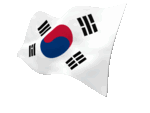Time to Teach and Time to Learn
페이지 정보
본문

May begins in Korea with a special anniversary that celebrates the nation-wide uprising of our people against the Japanese colonial rule in 1919. It is an occasion for us all to look back at the unarmed struggle with great pride, to be angry once again at the cruelty of the Japanese military police shown in the course of supressing it, to commemorate those dead who sacrificed their lives for the cause of freedom and independence, and renew our love for the country that has become free and independent at so dear a price. Many articles are written and published in the newspapers and special programs are on TV to meet these objectives.
It is quite understandable that most of the elderly Koreans who have had the bitter memories and experiences of the hard times hate the Japanese, and instinctively dislike anything that is associated with Japan. They hate to see the Japanese national flag flying at the Japanese embassy in Seoul; they hate to hear Japanese language spoken in the hotel lobby; they feel shame to see the huge Governor General's Office building built by the Japanese to rule the Koreans still standing in the heart of Seoul and being used as the National Museum; they can't be enthusiastic about the wealth and prosperity being recovered and accumulated by the Japanese so quickly out of the ashes of defeat in the World War II. They seem to be deeply dissatisfied with or disappointed by the divine retribution, if there be anything like that.
It is also true, however, that this hatred toward Japan is very abstract and superficial one, not so deep or so genuine. We Koreans love to go to the Japanese restaurants and eat Japanese foods. So many Korean tourists are eager to go to Japan, and love to take hot-spring bath at Kagoshima. We love to buy and possess all those Japanese-made electrical gadgets and commodities, such as electric razors, cameras, walkmans, color TV sets, and cars. The number of students going to Japan to study are steadily increasing year by year, and the department of Japanese language and literature in the colleges and universities throughout the country is enjoying growing popularity among the highschool students. Japanese tourists are free, safe and welcome everywhere in Korea. In short, our love for the Japanese, now 50 years after liberation, far outweighs and outstrips the hatred we think we harbor and feel toward them.
But, still there is something that makes us hesitate to say openly and publicly that we love Japanese. We want to, but we usually come shy of it, although we admit privately among us that they are superior and excellent in so many ways. They are so intelligent that they lead the world in the field of technology; they are diligent, responsible, civil, polite and kind people; they are wealthy, but very frugal. In every way, Japan is a good model of an advanced country next door to us, but very unfortunately we have avoided her with effort and are still avoiding her, or looking past her for a model somewhere else. Why?
History can answer that question. In the long relationship between the two countries, we don't remember anything good or pleasant that have been done to us by the Japanese. Not a thing. They were always invaders, marauders, persecutors, and killers in the past. Unlike the Americans or the Chinese, they have never provided an opportunity or an occasion to make us feel that they are a friend. They proved themselves to be a bad neighbor.
The simple historical fact that we have never invaded, or even attempted to invade Japan, makes the situation and the atmosphere worse. If we had done some harm to the Japanese, as they had done to us, our bitterness towards them would have been much less and lighter, while their guiltiness toward us would not have been so heavy.
Furthermore, the fact that we not only passively inflicted no harm on them, but helped them positively is an unhappy reminder of their ingratitude. In about the 6th and 7th century some of our scholars and engineers went to Japan and taught them Chinese letters, and how to build Buddhist temples, and did some wall-paintings for them. It was long before a series of Japanese invasions had started, and it seems that we were culturally superior to them at that time. The pride that we were once teachers in some areas of the cultural life of Japan can be a great compensation and consolation for us, but it also can be a great obstacle to the normal relationship between the two peoples.
Now it is time for us all to review the meaning of this annual anniversary, and settle some of the old scores against the Japanese. We cannot hate anybody or anyone forever. It is not good, more than anything else, for our mental health. The anniversary should no longer be an occasion only to reopen the old wounds and revive the dying embers of hatred and humiliation. It must be an occasion to reexamine the reason why and the way how Japan has become so strong and prosperous a nation.
They were so good a student to begin with. They learned Chinese letters from us and invented their own. They learned from us how to build temples, and built those magnificent and gigantic ones of their own, such as Todaiji and Horyu-ji. When we closed our door to the world and were deeply engrossed in internal divisions, feudings and conflicts, they sent young students to the western countries and learned everything necessary well and fast for building up a modern nation. Their sincere attitude of learning made all the difference.
Tables are turned. It is time for us now to learn from the Japanese, if there is anything to learn from them. And there is much and many. We should learn well and diligently, as they once did from us. There is nothing wrong or shameful in learning what is good and better from someone, whether he is a child or even a foe. The first and most urgent thing we should learn from the Japanese is, I think, how drive a car: so gently, so noiselessly, and so politely.
(March 1, 1991)
- 이전글Once Upon a Time in Korea 21.01.13
- 다음글On the Problem of Returning to Nature 21.01.13
댓글목록
등록된 댓글이 없습니다.








